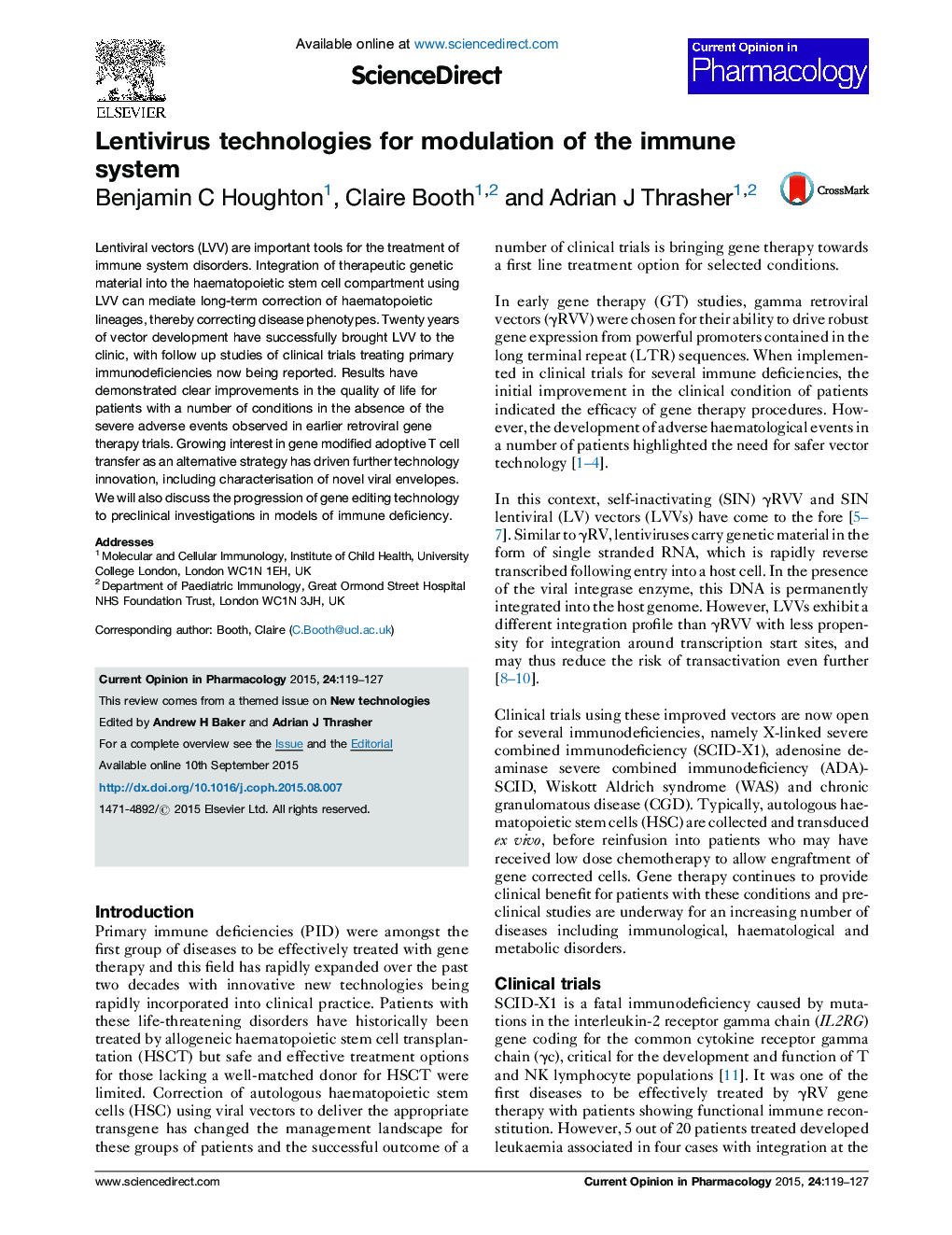| Article ID | Journal | Published Year | Pages | File Type |
|---|---|---|---|---|
| 2529799 | Current Opinion in Pharmacology | 2015 | 9 Pages |
•Lentiviral vectors (LVV) in clinical trials to treat primary immune deficiency (PID).•Gene modification of T cells using LVV for therapeutic purposes.•Novel envelope pseudotypes improve transduction profiles.•LVV gene editing technology in models of PID.
Lentiviral vectors (LVV) are important tools for the treatment of immune system disorders. Integration of therapeutic genetic material into the haematopoietic stem cell compartment using LVV can mediate long-term correction of haematopoietic lineages, thereby correcting disease phenotypes. Twenty years of vector development have successfully brought LVV to the clinic, with follow up studies of clinical trials treating primary immunodeficiencies now being reported. Results have demonstrated clear improvements in the quality of life for patients with a number of conditions in the absence of the severe adverse events observed in earlier retroviral gene therapy trials. Growing interest in gene modified adoptive T cell transfer as an alternative strategy has driven further technology innovation, including characterisation of novel viral envelopes. We will also discuss the progression of gene editing technology to preclinical investigations in models of immune deficiency.
